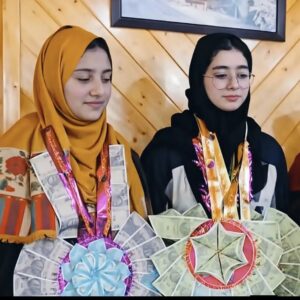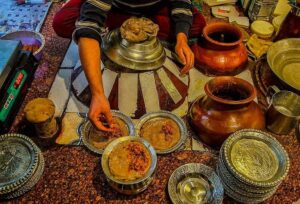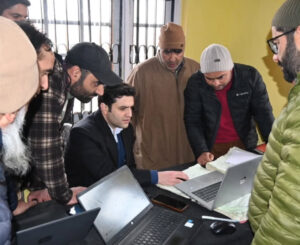Ramadhan 2025 A Sacred Month of Spiritual Growth Sustainability and Global Impact

By||Farooq Ahmad Lone
Muslims across the globe are fasting during the sacred month of Ramadhan, refraining from food and drink from dawn to dusk. Ramadhan holds deep significance for Muslims due to its connection with the revelation of the Holy Quran, fasting, and notable historical events during the Prophet’s leadership in Makkah and Madina. In this blessed month, Muslims dedicate themselves to fasting, reciting and understanding the Holy Quran, engaging in prayers, charity, and other good deeds. The aim is to achieve Taqwa (fear of God) on a personal level and work toward the collective good of the community.
During Ramadhan, Muslims are drawn to the recitation of the Quran, performing prayers, engaging in charity, and practicing kindness. Even those who don’t pray throughout the year start engaging in prayers and Quranic recitation during this time. The month is spiritually special, as Muslims embrace fasting, prayer, and deep reflection. Even children, for whom fasting isn’t obligatory, try fasting, sometimes breaking it halfway through the day. Through fasting, Muslims strive to attain Taqwa, which guides their lives with the light of the Quran and Sunnah. Thus, Ramadhan serves as a period for spiritual renewal.
Ramadhan also encourages community development and sustainable practices. Breaking the fast with water or dates makes Muslims realize the importance of resources like water, which are often taken for granted. The experience of fasting heightens awareness of food, water, and other blessings. In this way, Ramadhan promotes efficient resource use and aligns with the concept of sustainable development. Hence, Ramadhan is not only a spiritual event but also an environmental one.
The month of Ramadhan also offers a chance for a digital detox. With more time for prayers and spiritual activities, Muslims naturally disconnect from the digital world. Psychologists recognize this opportunity as a way to counter smartphone addiction. Therefore, Ramadhan serves as both a psychological and spiritual reset.
Additionally, Ramadhan inspires Muslims toward knowledge and geopolitical strength. The Quran, revealed during this month, emphasizes the importance of seeking knowledge. The first revealed verse specifically stresses reading and learning. The Quran provides guidance on personal conduct as well as international matters. Several key victories in Muslim history took place during Ramadhan, including the Battle of Badr, the peaceful conquest of Makkah, and Salahuddin Ayubi’s liberation of Masjid Al-Aqsa. In conflict regions, ceasefires, known as “Ramadhan Ceasefire,” often occur, fostering peace. Thus, Ramadhan is as much about geopolitical awareness as it is about spirituality.
In conclusion, Ramadhan is a month of mercy, forgiveness, peace, and spirituality. It also conveys messages of knowledge, activism, and geopolitical strength. As Muslim analyst Samid Hamid said, “Ramadhan is not to rest, it is to reset.” Let us embrace this opportunity to reset in Ramadhan 2025.
Author: Farooq Ahmad Lone can be reached at lonefarooqahmad80@gmail.com.





